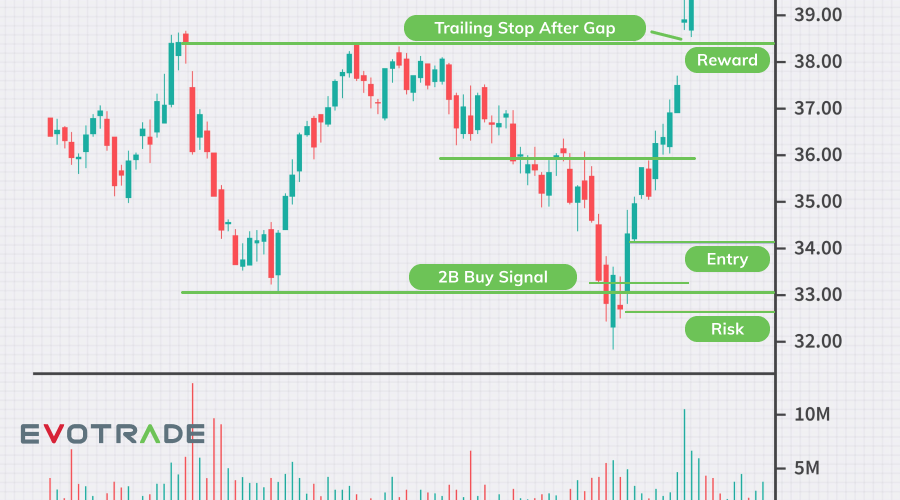Trading strategies as a key to an excellent performance

When you deal with financial markets, the availability of a solid and consistent strategy to navigate your decisions and actions is crucial for your success. Of course, there are people who succeed without a strategy; however, in the vast majority of cases, their success results from ordinary luck that tends to run out, sooner or later. In turn, with a global benchmark in the form of a comprehensive set of principles and goals, individuals are able to make the right decisions and gradually move towards their objectives even in the most complex markets.
However, the question arises: what is an effective strategy, and what forms could this phenomenon obtain? Upon getting acquainted with this guide, you will learn about the essence of trading strategies, their main types, and the circumstances of their application.
What could be considered a trading strategy?
Trading is a wide and diverse field. Not only does it include a variety of segments and closed systems, each of which is characterized by its own distinctive features, but it also provides market players with a vast range of options for their actions. The acquisition or sale of assets, opening or closing positions, and many other options are available to traders. In the conditions of such diversity, participants in the trading process need a common outline within which each of them will work. This outline is embodied in the form of a trading strategy.
In the broadest sense of the word, trading strategies are methodological principles, rules, benchmarks, and norms that a person uses to facilitate his or her investment-related decision-making. Meanwhile, they also indicate the goals that a person seeks to achieve and build an approximate path by which he or she should move toward those goals.
Although each trading plan is individual and unique to the person using it, there are certain common features inherent in each of them, regardless of the type of strategy and the group to which it belongs. These features always include a thorough analysis (fundamental, technical, or both), the selection of specific indicators on which the trader relies, the formation of a big picture that a person seeks to implement, the establishment of specific rules for determining trading volumes, and other similar aspects. At the same time, in addition to these common features, trading strategies have their own individual traits that make each of them unique and specific. These features will be discussed in one of the following parts of the article.

Different markets to apply trading strategies
As mentioned above (and will be repeated many times in this article and many others due to this statement's never-expiring validity), trading is a multifaceted and diversified field. Therefore, it includes many different markets, each of which is characterized by its particular features and specific patterns. In different markets, various trading strategies can be effective, which is why people need to keep in mind that they cannot apply proven patterns of one market to another's conditions. With the transition to each new area, the process of crafting a trading strategy is relaunched.
If you are involved in trading, you should always remember the essence and difference between the following major markets available to everyone. The list includes five essential areas:
- Foreign Exchange (Forex)
- Cryptocurrencies
- Stocks
- Indices
- Commodities
Each of these fields is unique, differing primarily in the nature and specificity of the assets with which transactions are applied within the market. In all cases, the very name of the market directly indicates which assets are bought and sold within it. Among the strategies available to traders, there is neither a universal winning strategy nor models that are most suitable for each specific market. Each trader must determine which strategy is most appropriate to his or her personality and style, as well as for the market conditions in which that person plans to carry out his or her operations.
The most common groups of trading strategies
Most of the strategies available to individuals interested in trading can be attributed to one of the following five aggregated groups.
- Swing trading
-
This is one of the most widespread strategies. Within it, a trader buys certain assets, holds them for several days to achieve price increases due to fluctuations, and sells them. Swing trading is based on an elementary principle: the market is always moving and changing, which leads to similar transformations in the value of assets. For swing traders, it is important to correctly anticipate price changes and make strategically right moves in response to these transformations. To do this, they rely primarily on technical analysis and, in particular, the price charts, which reflect price fluctuations over specific periods of time.
- Day trading
-
In many respects, this strategy is very similar to swing trading. Thus, like the previously discussed model, day trading provides traders with profits based on the sale of pre-purchased goods after their prices rise. However, while swing trading stretches one transaction for several days when functioning based on day trading, individuals usually sell assets within a few hours. As a result, their profits from a single transaction are significantly lower; at the same time, the number of transactions is many times higher than in the case of other trading models.
- Algorithmic trading
-
This strategy utilizes the power of progress and, in particular, the development of computer technologies to the fullest extent. It is based on the use of computer algorithms that consider all the changes in the market, such as fluctuations in prices, different volumes of assets, trading time, and other aspects. Analyzing these circumstances in their entirety, the program provides the trader with the most optimal options for actions that he or she may choose from. Thus, a person makes almost no decision-making on his or her own, delegating this function to the computer.
- Position trading
-
Like swing and day traders, proponents of positional strategy buy assets and hold them for some time before selling them in the most favorable conditions. However, in this case, the period of holding can last weeks, months, or even years. Position traders are, in fact, full-fledged investors because it is essential for them that the price of their assets increases not due to minor accidental fluctuations but due to the successful development of the projects in which they invest.
- Seasonal trading
-
Seasonal trading is highly specific because its adherents rely on luck and foresight more frequently than those who use other trading models. It is based on the idea that, during the annual cycle, specific patterns of market dynamics tend to recur. Therefore, seasonal traders review charts with information about previous years and, based on them, create a strategy for subsequent periods, hoping that these patterns will be repeated.
Bottom line
None of the strategies discussed above is universal and uncompromisingly effective in all possible circumstances. Moreover, even the same strategy applied by different people can bring completely different results. In this sense, a trader's personality and style play a key role in choosing the most appropriate and effective strategy. Therefore, if you want to succeed in trading, you should learn more not only about this field but also about yourself. This advice is never superfluous. However, it is especially relevant in trading.










